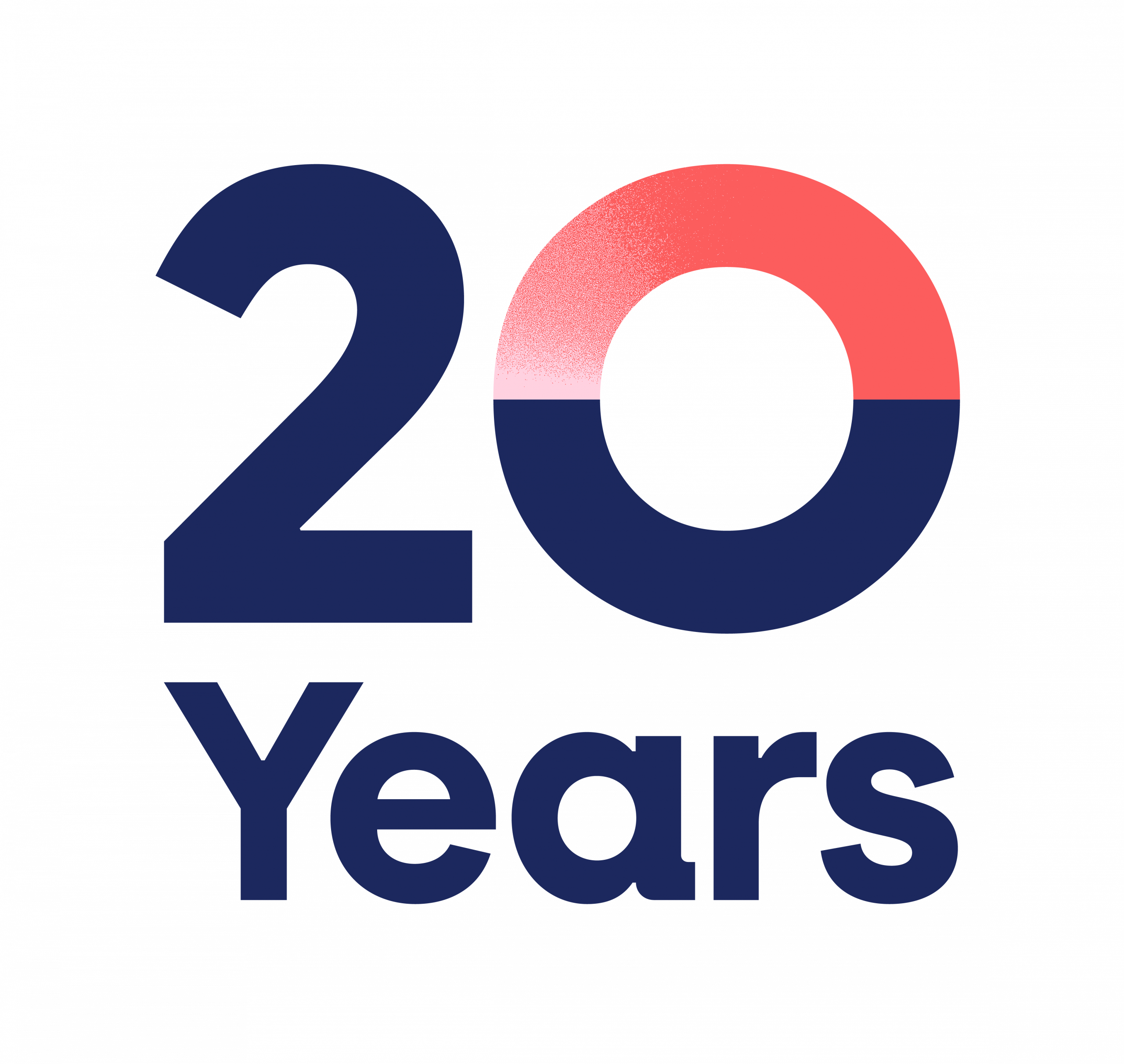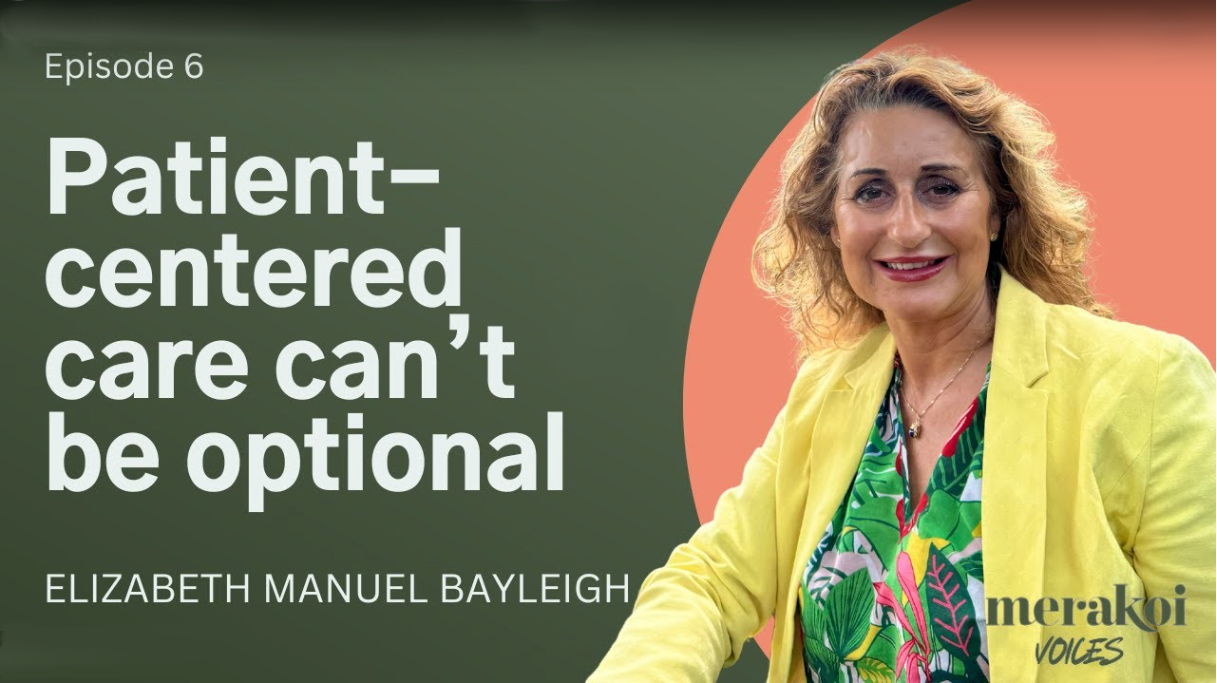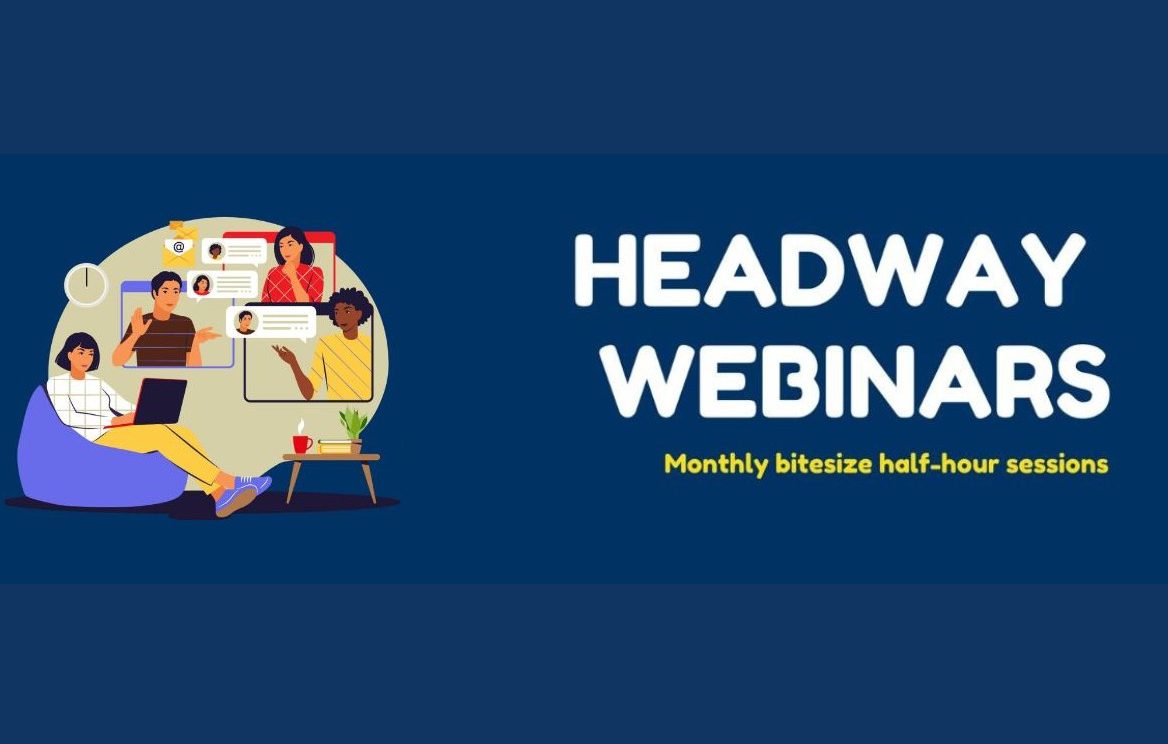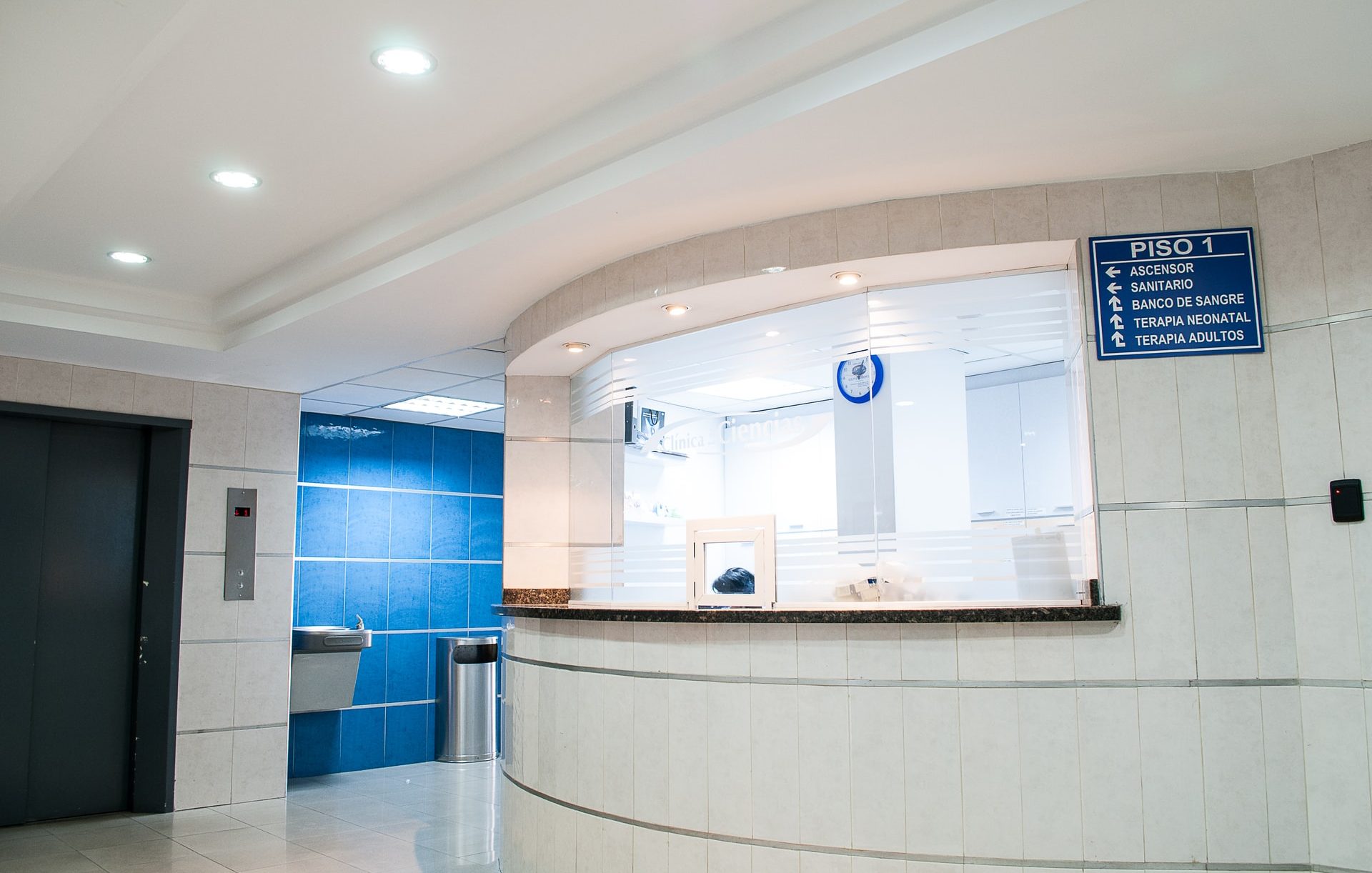The Brain Injury HRC was delighted to be invited to the UKABIF Time for Change Summit 2024, which took place on 4th November in Manchester.
Co-chaired by James Piercy (our PPIE lead) and Andrew Bateman (our Capacity Building lead), it was a day full of hope and inspiration. With a range of speakers, from experts in their field to experts by experience, it was a place to come together and hear about the world of brain injury.
We also had the honour of attending the award dinner the evening before. It was wonderful to recognise the up-and-coming innovations in the brain injury field and we hope to work with all the nominees in the future. Congratulations to Sarah Rosamund and Berkan Sesen for winning with their app Recallify.
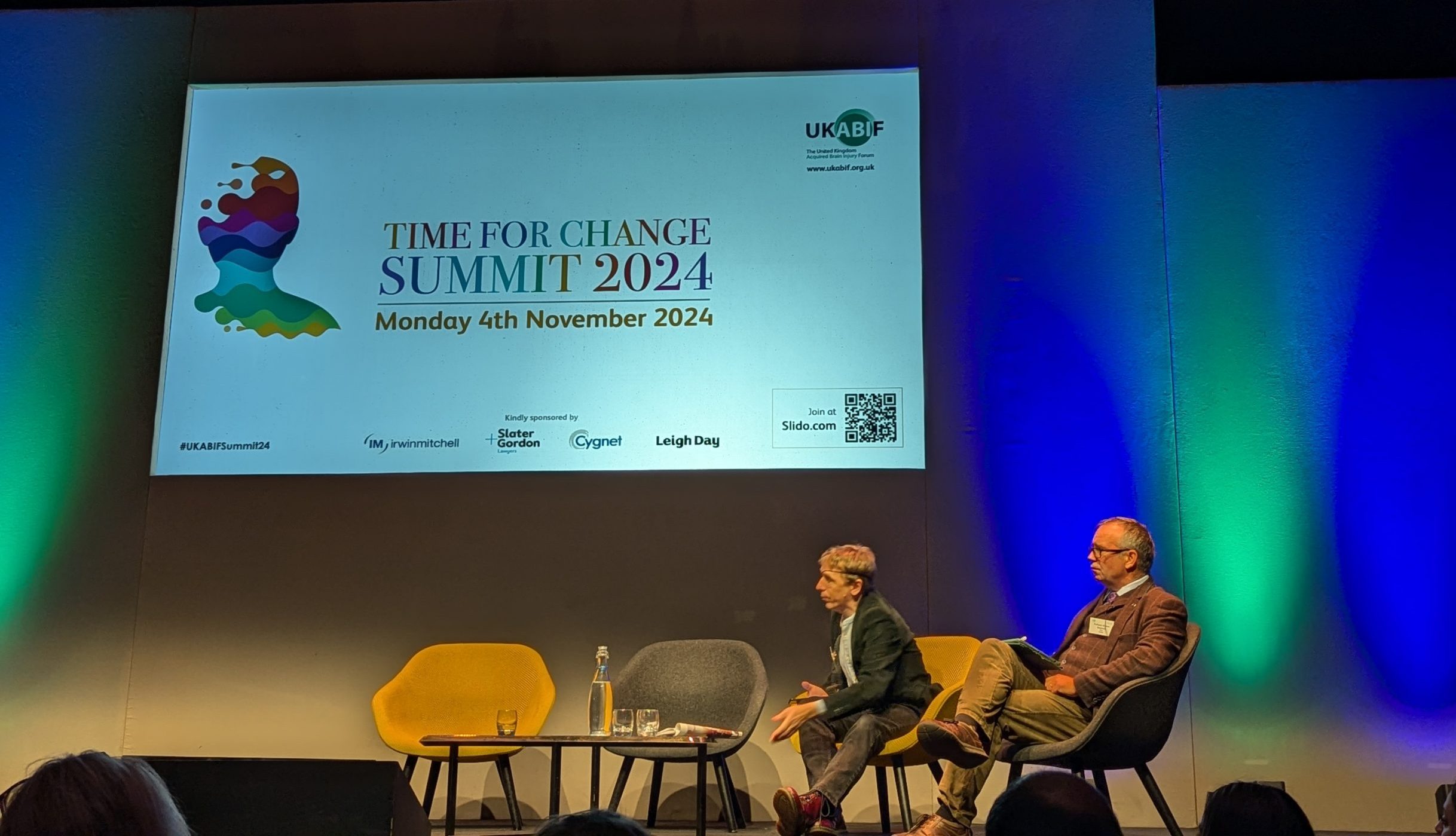
Click on each box below to find out more about the sessions. For further information on the topic, click on the image.

Click here to find out who your local MP is and how to contact them, all you need to know is your postcode.
 Kate Tantam (Rehabilitation Nurse in Plymouth) spoke about the Right to Rehab Campaign. There are many people who do not have access to rehab, purely because of where they live. As we know, rehab after brain injury is vital to help people on their recovery journey to get back to living at home. People should not be denied this care just because of where they live.
Kate Tantam (Rehabilitation Nurse in Plymouth) spoke about the Right to Rehab Campaign. There are many people who do not have access to rehab, purely because of where they live. As we know, rehab after brain injury is vital to help people on their recovery journey to get back to living at home. People should not be denied this care just because of where they live.
If you want to support this campaign to ensure that people who need it can access appropriate rehab services in their area, take a look at their website and sign the petition.
 We then heard from Debbie about her experience with managing her mental health during her Rehab journey. Debbie expressed how the physical journey was difficult, but her struggle with her mental health during this time was also difficult. Debbie did not have the access she needed to rehab support in the community after she was discharged from the hospital. This made her recovery time longer and a more complicated journey.
We then heard from Debbie about her experience with managing her mental health during her Rehab journey. Debbie expressed how the physical journey was difficult, but her struggle with her mental health during this time was also difficult. Debbie did not have the access she needed to rehab support in the community after she was discharged from the hospital. This made her recovery time longer and a more complicated journey.
Professor Rui Loureiro (Research Director) is hoping that the opening of the new National Rehabilitation Centre in Nottingham will increase the resources available and be pivotal in providing new guidance for Major Trauma Centres across the UK. This will be supported by the NIHR HealthTech Research Centre in Rehabilitation based at Nottingham University Hospitals. By creating a better standard of care for community rehab, we can ensure that people like Debbie will no longer struggle with access to support during their rehab journey.
 Kevin was getting to grips with the common symptoms after a brain injury: including short-term memory loss, difficulty with his speech, and fatigue. Kevin tried to access support through the NHS but was dismissed as these symptoms are common and part of the rehab journey. Something wasn't right, Kevin knew that he needed further help and he was beginning to develop a tremor in his left arm which would sometimes affect his left leg too.
Kevin was getting to grips with the common symptoms after a brain injury: including short-term memory loss, difficulty with his speech, and fatigue. Kevin tried to access support through the NHS but was dismissed as these symptoms are common and part of the rehab journey. Something wasn't right, Kevin knew that he needed further help and he was beginning to develop a tremor in his left arm which would sometimes affect his left leg too.
After a lot of research with the support of his wife, Kevin found Brain and Mind. There he met Dr Mike Dilley, who assessed him and diagnosed him with Functional Neurological Disorder (FND). FND is different to physical brain injuries which may affect a patient during their recovery, they are purely psychological. This means they need different treatments and approaches to a physical injury to the brain which can cause the same symptoms.
Dr Mike spoke at the event about how this disparity can lead to longer recovery times and leave patients feeling hopeless. Not all brain injury is a cognitive impairment, and the correct diagnosis must be made so that patients can access the appropriate treatment when they need it.
 Dr Virginia Newcombe spoke about the current patient pathway for mild traumatic brain injury (TBI). Currently, only severe TBI is followed through in any way. This leads to a whole cohort of patients trying to manage symptoms without clinical support. Given that approx. 50% of us will experience some form of TBI in our lifetimes, this is a worrying thought.
Dr Virginia Newcombe spoke about the current patient pathway for mild traumatic brain injury (TBI). Currently, only severe TBI is followed through in any way. This leads to a whole cohort of patients trying to manage symptoms without clinical support. Given that approx. 50% of us will experience some form of TBI in our lifetimes, this is a worrying thought.Virginia and her team have been investigating a multimodality approach to improving patient outcomes with mTBI. This includes creating a new app to help patients manage their symptoms at home and researching the use of biomarkers to help support the decision for a CT scan. Joanne Lloyd is an expert by experience and has been working with the team as a co-investigator. Jo understands that this research may not be able to help her, but believes in the importance of improving care for others and knows that by having her voice heard she can make a real difference.
If you want to be involved in research, click here to sign up for RHITE.
Ellis and Luke Parry are twins who, like most twins, share so many aspects of their lives. This was until 2012 when Luke suffered a serious traumatic brain injury (TBI) and was told he was unlikely to walk or talk again. Despite this, Luke focused on his rehabilitation journey and is now a Paralympian in sprinting and co-presented with his brother to talk to us all about NeuMind at the Summit.
During his rehabilitation journey, Luke gained a lot of materials and techniques to help him recover. He was passed between many different centres with many different carers and each time had to explain (again) his injury, his journey and his support network. Ellis was with him through his whole journey and knew there was a better way. Together they developed NeuMind, an app which supports patients and travels with them as they make their rehabilitation journey.
NeuMind is a cognitive assistance app which helps people live more independent and fulfilling lives. The app uses smart prompts delivered when and where they are needed. They can be practical, with reminders delivered at certain times or locations; or therapeutic, such as a cognitive strategy or a prompt designed to exercise memory. NeuMind has a library of strategies usually only available in private programs. Caregivers can be added to the user support circle where they provide collective support and contribute towards recovery regardless of their experience.
For more information, visit their website by clicking on their logo above.
Caroline Bald, Dr Alyson Norman, and Kate Mellor spoke about the importance of educating social workers on how to manage people with brain injuries. Patients who have a brain injury often have a long road to recovery both in physical and mental rehabilitation. This also has a long-term impact on the patient and their care network, often resulting in a multi-care team of healthcare and social work professionals.
Kate spoke about her training as a social worker before her brain injury. She reflected on how social workers often have limited training and understanding of brain injuries, especially since the term covers a broad spectrum of medical conditions. This can make it hard for the right support to be given and often leaves patient needs unmet. A lack of support can lead to serious consequences, such as homelessness, drug or alcohol addiction or suicide.
Heads Together has been working to bring education on brain injuries to trainee social workers, to improve the next generation's understanding of these complex conditions. Currently, they are looking to expand their reach by creating a complete training package that can be shared with education centres across the UK.
More like this:
Confidence, Crisis, and Comeback – A Conversation with Elizabeth Manuel Bayleigh
Listen to Elizabeth Bayleigh, Chair of our Public Oversight Committee, talk about her journey as a patient [...]
Headway webinars
Headway is running a series of webinars that are free and open to all! Anyone can sign [...]
Clinical Neurosciences Translational Research Day
Clinical Neurosciences Translational Research Day Opportunity in Cambridge! 4th of March 2025 9:30am-5:00pm For anyone who [...]

